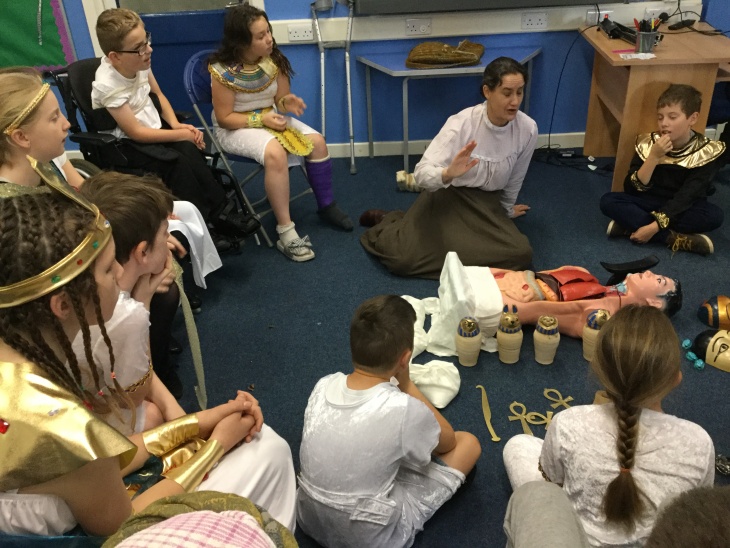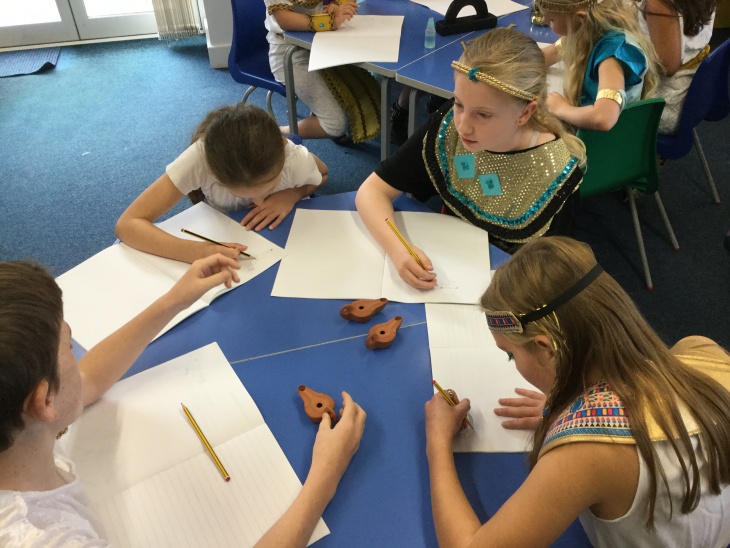History teaches an understanding about the lives of people who lived in the past.
Through their work in history children develop a curiosilty about the past, sense of chronology and a cultural understanding based on their historical heritage. They therefore learn to value their own and other people’s cultures in modern multicultural Britain and, by considering how people lived in the past, are better able to make their own life choices today. History makes a significant contribution to citizenship education by teaching about how Britain developed as a democratic society. Children understand how events in the past have influenced lives today. They are able to investigate these past events and, by so doing, develop the skills of enquiry, analysis, interpretation and problem-solving.
Our curriculum is planned to ensure that historical knowledge is taught alongside the development of skills such as chronolgy, interpretation of evidence, change, cause and consequence.
We aim for children to know and understand the history of these islands as a coherent, chronological narrative, from the earliest times to the present day: how people’s lives have shaped this nation and how Britain has influenced and been influenced by the wider world;
Our currculum is designed to allow pupils to know and understand significant aspects of the history of the wider world: the nature of ancient civilisations; the expansion and dissolution of empires; characteristic features of past non-European societies; achievements and follies of mankind;
We want pupils to gain and deploy a historically grounded understanding of abstract terms such as ‘empire’, ‘civilisation’, ‘parliament’ and ‘peasantry’;
Through topic based history, pupils understand historical concepts such as continuity and change, cause and consequence, similarity, difference and significance, and use them to make connections, draw contrasts, analyse trends, frame historically-valid questions and create their own structured accounts, including written narratives and analyses;
Pupils will understand the methods of historical enquiry, including asking pertinent questions, how evidence is used rigorously to make historical claims, and discern how and why contrasting arguments and interpretations of the past have been constructed;
The curriculum will allow pupils to gain historical perspective by placing their growing knowledge into different contexts, understanding the connections between local, regional, national and international history; between cultural, economic, military, political, religious and social history; and between short- and long-term timescales.
The History curriculum is taught through topics which are used to deliver the content within a meaningful context and wherever possible make connections to learning in other subjects. Topics have been designed to complement and build on one another with clear progression and links which will allow pupils ot apply their knowledge in different contexts.



